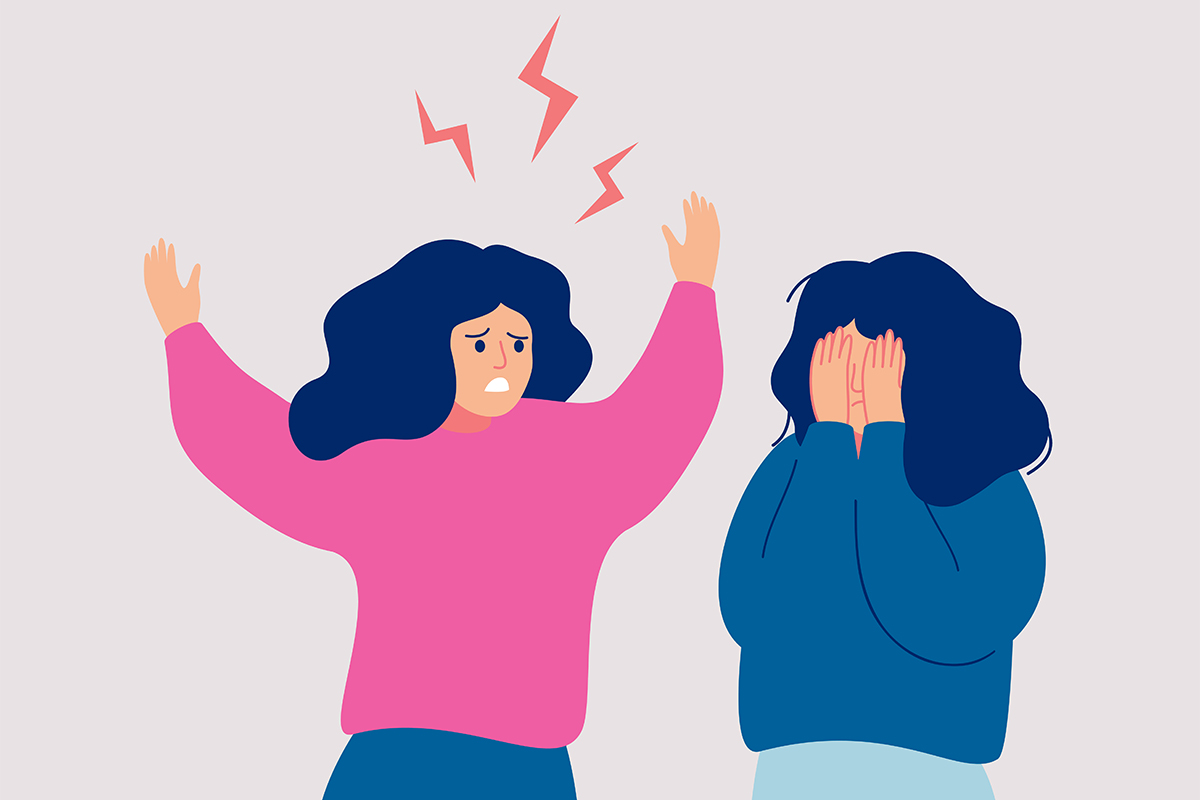Are you OK?
If you find yourself hearing that question a lot, you might be showing signs of irritability, says Laura Bertrand, licensed professional counselor and mental health expert at BlueCross BlueShield of Tennessee.
“I know I’m irritable when someone I love carefully says, ‘Are you sure you’re feeling alright?’” says Bertrand. “Hearing that note of concern lets me know something deeper may be going on.”
Here’s what you need to know about your health and irritability — including 5 ways to address it.
What are the signs of irritability?
“Irritability looks different for everyone, but there are a few signs we can all look out for,” says Bertrand.
Signs of irritability include:
- Elevated heart rate and blood pressure
- Overwhelming feelings of stress and anxiety
- Difficulty focusing on tasks
- Problems with memory and feelings of confusion
- Mood instability
- Difficulty making decisions or using good judgment
- Depression
Depression and irritability
“Depression in particular is something we all need to be aware of now,” says Bertrand. “In addition to more obvious symptoms like sadness or isolation, look for appetite changes, over- or under-eating or sleeping, and not enjoying things you used to love.
“Think of it like this: Some days you wake up feeling like you have an extra 50 pounds on your shoulders, and that’s normal. But waking up every day feeling like you have an extra 500 pounds weighing you down is not. If you feel like making it to the bathroom and back is impossible, or if you’re always sad or numb to the point your life has no highs or lows, it’s time to talk with someone.”
It’s also important to look out for signs of depression in children. Because they may lack the verbal ability to express how they feel, depression can come out as a tantrum or a regression to behaviors such as bedwetting, crying or biting.
“If a child doesn’t have the emotional maturity to say, ‘I miss my friends,’ or ‘Things are scary right now,’ it can easily build up to an outburst,” says Bertrand.
Loneliness and irritability
Another big trigger of irritability is loneliness. Long-term separation from the people we love affects our brains the same way a constant low-level threat would, says Bertrand.
“It goes all the way back to early hunter and gatherers who needed a group to feel safe,” says Bertrand. “Being alone makes you vulnerable. Long-term, it makes your body and mind feel the same way they would if you were physically being threatened. Naturally, that leads to an increase in irritability, depression, outbursts and difficulty regulating emotions.”
Identifying something more serious
So how do you know when irritability indicates something more serious is going on with your health? Try these 4 steps:
- Look at whether or not the interventions that generally help are still helping. An intervention is anything that usually provides stress relief or a “reset” such as exercising, reading or playing with your kids.
- Consider whether your changes in mood could be related to starting or coming off of a medication, or an increase or decrease in caffeine or alcohol consumption.
- Ask yourself if your reactions are proportional and reasonable. If something happens that frustrates you — a disagreement with your spouse or coworker, for example — and you’re still furious about it four days later, something else is probably at the root of it.
- See if you can pinpoint the reason for your irritability. Identifying and naming a problem is the first step to letting it go. Get to the bottom of it if you can.
If none of these steps solve your problem, ask for help.
5 ways to combat irritability
In general, there are simple activities that can stave off irritability.
1. Take a walk outside.
Ten or 15 minutes is all you need to boost your mood and give you a solid dose of vitamin D.
2. Eat healthier.
You’ve heard it a million times, but the fuel you put in your body affects your mood. You don’t have to overhaul your whole diet to feel better. Start small by adding an extra veggie or fruit to your next meal.
3. Increase safe physical contact.
If you live with people and feel safe doing so, add touch into your day. People need physical contact, and it’s a good way to push endorphins through your brain.
4. Spend time with people.
Our brains react positively when we’re with people we love and who love us. If you can’t be physically close with people, try zooming or Facetiming.
5. Do nice things for other people.
Doing good for others increases oxytocin, a hormone released when you bond with someone else that makes you feel good. It can be as simple as donating $5 to a cause you believe in, asking an elderly neighbor if they need groceries or writing a note to a friend.
For tips on maintaining your mental health during COVID-19, click here.
Get more information about specific health terms, topics and conditions to better manage your health on bcbst.com. BlueCross BlueShield of Tennessee members can access wellness-related discounts on fitness products, gym memberships, healthy eating and more through Blue365®. BCBST members can also find tools and resources to help improve health and well-being by logging into BlueAccess and going to the Managing Your Health tab.


